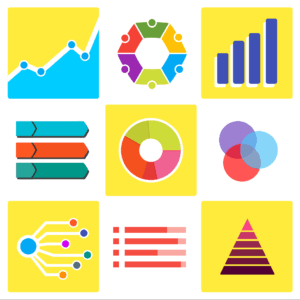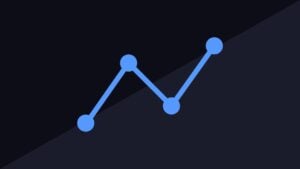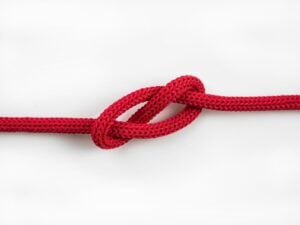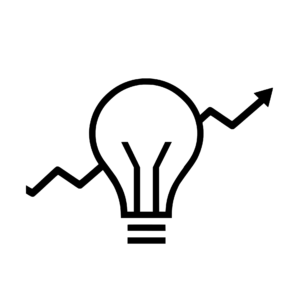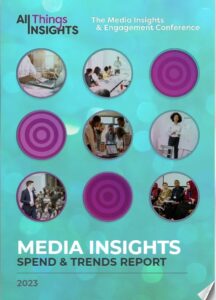Stay Focused on Curiosity, Action and Influence
In addition to the power of observation, which we touched on last week, Yogesh Chavda, Director, Center for Marketing Solutions, University of South Carolina, advises entry level associates and his students to follow some key best practice advice: be curious.
“Be curious,” says Chavda. “Don’t just accept you know whatever you’re hearing you know as the truth. Be curious and keep on penetrating and keep on understanding the consumer behavior. What are their tension points? What tradeoffs are they making? Because as you understand that better, then you will start understanding why their decision making is based on a particular path or not.”
Chavda continues, “Second, is focus on the action. No matter what research you do you have to make sure that it’s just not a ‘nice to have.’ What is the decision I’m making, or what is the strategy that I’m going to develop, and what is the action I’m going to take. Focus on the action.”
Finally, Chavda observes, it’s all about the influence the insights can have in the workplace. He says, “Insights are all about influence. I have actually used this in a job interview. When I was in my last corporate job that I was interviewing for, the president for the U.S. division asked me, why should I hire you because this is the first time we’re hiring somebody in insights?”
Chavda relates, “And I said, look, I see you as the godfather. I see me as the consigliere if you think back to the Godfather movie. I don’t expect you to listen to everything I say, but I expect you and I hope you will at least listen to what I have to say before you make your decision. That’s all I ask. All I want to do is to be able to influence you before you make the decision. You’ll be hearing other voices, but I’m going to be the only one who’s going to be objective because I’m not tied to the brand, I’m not tied to any other initiative. I’m just tied to making sure that from an external perspective, you have the best information in front of you before you make your choice. He laughed and hired me, by the way.”
“The part about insights making an impact and influencing decisions is something that is forgotten by a lot of young people,” notes Chavda. “The job is not just come and share the data and therefore it’s done. It’s about how do you influence? How do you get people emotionally to buy into what you’re saying against the actions that you’re recommending? That is super critical.”
Building a Foundation of Experiences
For Gabriel Dorosz, founder and principal of Mighty Blackbird, a consultancy focused on building a better media and advertising ecosystem for publishers, brands and audiences, (and formerly Head of Insights for New York Times Advertising), for junior level associates it’s important to broaden your experiences.
“Take every opportunity you can to participate in as wide a set of projects as you possibly can, even if you’re just helping out with admin tasks,” advises Dorosz. “I think your early career is about building a set of diverse experiences that you can build on over the course of time, much like a pyramid—look at it as setting a foundation. Some of these experiences will be formative, some will seem like busywork but later you’ll realize how valuable they all were to your growth. Raise your hand and set your ego aside.”
It’s those experiences, in both the workplace and in life, that Dorosz feels are so important to the formation of the well-rounded insights professional. This includes the experience of failing, which is sometimes overlooked in the corporate context.
Dorosz relates, “I’ve realized later in life how much my unique life experiences—and even my mistakes along the way—contribute greatly to my ability to see things in ways others often don’t see, which in the world of insights and research can translate into a kind of superpower.”
He adds, “I spent so much time moving between worlds at a young age—rural, urban, religious, secular, conservative, liberal, mainstream, outsider, working-class, WASPy, midwest, southern etc.—that I constantly felt like a fish out of water. But looking backward, that led to becoming hyper-attuned to context and human behavior, and I think that made me much more capable of identifying unique insight.”
It’s those unique experiences that can hone your perspective in market research and derive stronger consumer insights.
“Whatever you bring to the world of research that’s unique in terms of your perspectives and experiences can help you see things differently. But only if you can master the art of distinguishing what’s useful and actionable from what’s merely interesting,” says Dorosz.
Making a Difference
Certainly, work and life experience can be instrumental in gaining that executive seat at the table. That takes time. We also asked Chavda, as an insights professional, what makes you ahead of the pack?
“The first factor is being able to connect the dots,” says Chavda. “Being able to see things and being able to translate ambiguous questions into something that’s very pragmatic and relevant for the business. That’s a skill set. That’s not something that comes naturally for anyone. It took me a long time to build up that skill set. But I can go into a conversation listening to senior leaders or the C-suite, and I’m able to kind of insert myself into the conversation and help them think through the problem. This is the framework we need to use to be able to solve for this particular problem. That’s job number one.”
“At least as a senior leader, that’s something that I think is one of my biggest differentiators right now. I’m not coming in and talking about methodology. I’m not coming in and talking about the insights exclusively, but I’m helping people think through their problems, number one. That requires credibility. It requires trust and respect, which is earned over time. It doesn’t happen overnight,” says Chavda.
He adds, “Going back to what I discussed earlier, which is if you’re curious and if you’re action oriented, then it comes across in how you’re talking about what you’re going to do. What are the options? What are the opportunities and what are the risks? The senior leaders, they’re focused on growth and building the business. They’ve got legal people who will help them with the risk. If there’s a consumer risk, of course, you know, that has to be talked about, but don’t make that the primary focus every single time—focus on the opportunities.”
A final point that Chavda brings up is the current focus on technology in insights. “In this environment right now, knowing how to bring in the right kind of tech and to be able to recommend how to use it, which is applicable to the business questions at hand, not for tech’s sake, but for impact across the organization. That’s where it matters,” he says.
Related Stories in the Human Insight Series
- “Human Insights: Understanding People to Drive Impact”
- “Beyond Algorithms: Reclaiming Human-Centricity”
Video courtesy of Innovation Impossible
Contributor
-
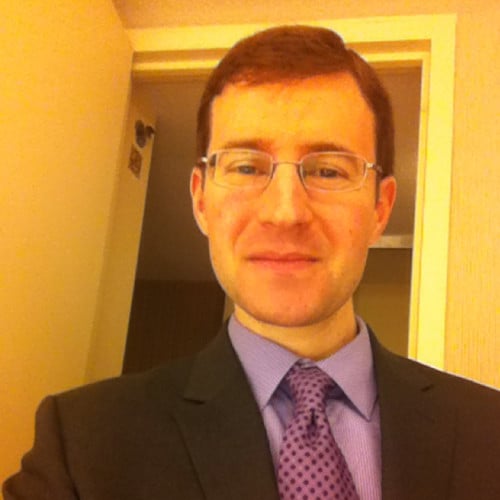
Matthew Kramer is the Digital Editor for All Things Insights & All Things Innovation. He has over 20 years of experience working in publishing and media companies, on a variety of business-to-business publications, websites and trade shows.
View all posts




















